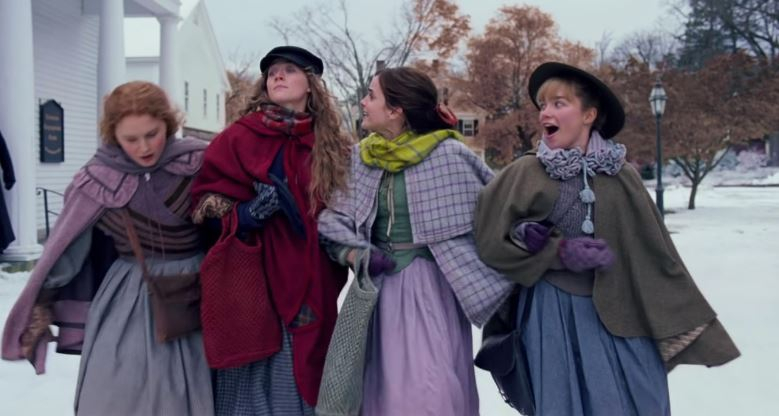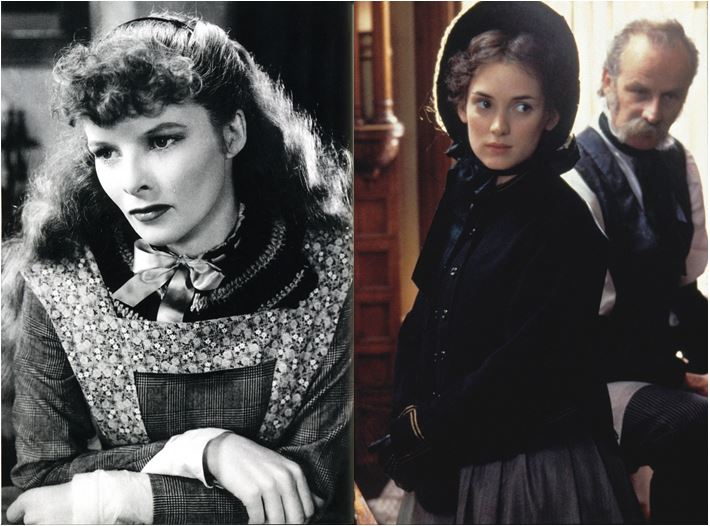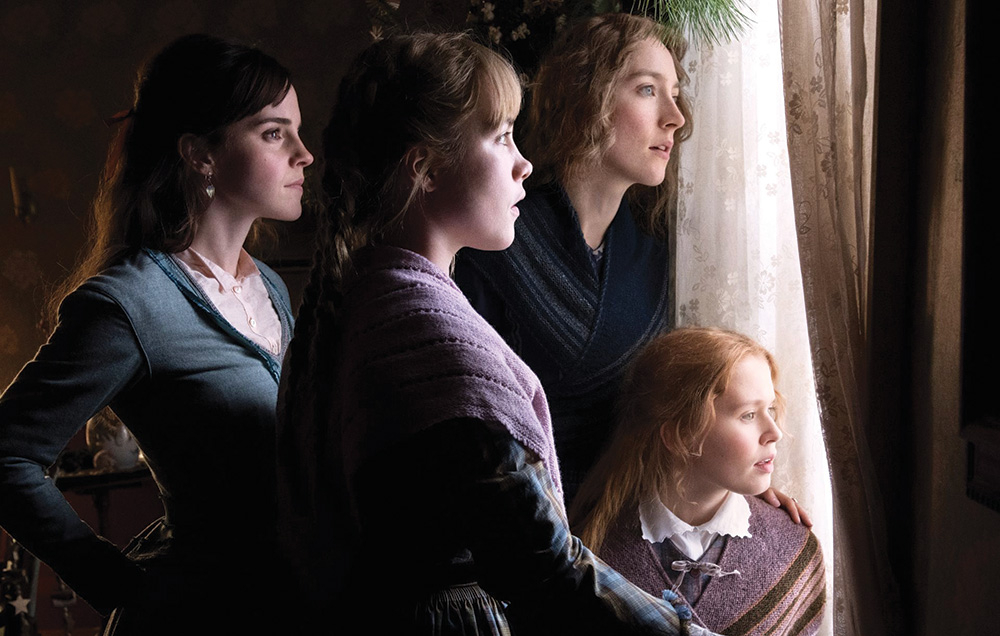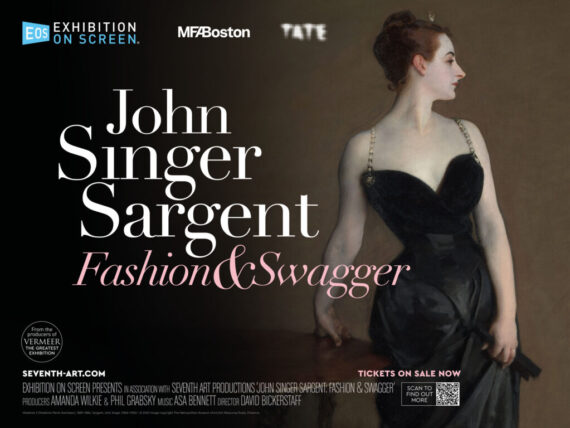Greta Gerwig’s recent adaptation of Louisa May Alcott’s Little Women, proves that these characters and their stories continue to excite audiences since the release of the novel in 1868. Following Gillian Armstrong’s much-loved film in 1994, Gerwig’s reworking is now the sixth big screen adaptation to focus on the March family. Whilst remaining faithful to the source material, Gerwig’s screenplay breathes new life into the well-known story of the four sisters growing up during and after the American Civil War. Gerwig’s second directing role follows on from her success with Lady Bird, a film which focuses on female relationships, creative aspirations and coming of age, themes that are synonymous with Alcott’s story; it is clear that Gerwig was the perfect person to direct and write this film.
Opting for a non-linear narrative, Gerwig shifts between the sisters in their early adulthood and casting back to them as young girls. We first meet an adult Jo March (played by Saoirse Ronan) in New York as an aspiring writer, Meg (Emma Watson) as a married woman and new mother, Amy (Florence Pugh) as an art student on a European tour with Aunt March (Meryl Streep) who meets up with the Marchs family friend Laurie (Timothée Chalamet) and Beth (Eliza Scanlen) as a shy piano player who remains at home with Marmee (Laura Dern). Framing the story this way, allows the audience to compare the characters childhoods to their adult lives and it is a powerful tool for storytelling. The juxtaposition achieved through placing Beth’s illness side by side, becomes an extremely emotional part of the film and is a testament to Gerwig’s writing and the cast performances. Whilst Gerwig has not received an Oscar nomination for directing, she has been recognised in the Best Picture and Best Adapted Screenplay category.

(Beth, Jo, Meg and Amy in Little Women, 2019)
Gerwig shaped the film to draw on autobiographical elements of the author. Through shooting the film in Massachusetts (where Alcott lived) and by intertwining material from the novel and from the authors life into the script, Alcott’s presence seems more evident in Gerwig’s film than in any other adaptation; “I’d rather be a free spinster and paddle my own canoe”, is taken right from a letter written by Alcott and placed into Ronan’s character. When revisiting the novel, Gerwig was shocked by the modernity and urgency of the book, highlighting why the character of Jo and her story still resonates with audiences today. Mirroring Alcott’s own life, Jo pushes against the rules imposed on women and strives to make own way. From Katherine Hepburn to Winona Ryder, Ronan follows in the footsteps of some fantastic performances, but finds her own voice and captures Jo’s spirit and passion excellently. Ronan gives an energetic and emotional portrayal of the beloved character, which will make you laugh and feel utterly heartbroken at times.

(Katherine Hepburn and Winona Ryder as Jo March in the 1933 and 1994 adaptation)
Florence Pugh manages to steal the show though, by taking on a new approach to Amy’s character. Whilst many of the previous versions of the story have portrayed her as the spoiled and selfish younger sister, Pugh manages to present Amy as a determined woman who is struggling to find her place; “I want to be great or nothing”, a brilliant line directly from Alcott’s text, which encompasses Pugh’s character perfectly. With Gerwig’s script and Pugh’s wonderful performance, Amy is given a depth that has not been brought to the surface before and makes the audience finally forgive her for the mistakes she made when she was younger. The romantic chemistry between Amy and Laurie is also played out well as Gerwig allows more time for this relationship to develop, thereby encouraging the audience to route for this pairing. This film is as much Amy’s story as it is Jo’s and it is no surprise that both Pugh and Ronan have been nominated for an Academy Award for their performances.
The film has a lot of energy and warmth about it, particularly in scenes when all the sisters are together. Gerwig did not change the dialogue from the book, but in order to make scenes feel vibrant and energised, she had the characters lines overlap each other at such a quick speed, that you can’t help but feel like you are part of this family and in the room with them. Gerwig has shown us these well-known characters in a new light and asks us to show an understanding towards their flaws. Little Women is a heart-warming, must see film that reminds you of the triumphs and tragedies that takes place within a family household. So far, the film has earned up to $130 million worldwide, proving that audiences are still longing to return to the March household.
Isla Sinclair









Comments
No comment yet.